Should You Ride a Motorcycle?
Since the invention of the motorcycle, people have been drawn to them for a variety of reasons.
They are fun, fast, and give feelings of freedom and power. You can aggressively lean into corners, or just kick back. The experience is an open-air ride no car can come close to offering.
And for just about as long, marketers have been selling motorcycles based on these attributes, delivering up better and better machines. Riders too, have long recruited others, telling them how much fun and what a great lifestyle it is.
| Allstate Insurance On Rider Safety |
Our friends at Allstate Motorcycle Insurance know a thing or two about motorcycle safety. In addition to Motorcycle.com's safety series, Allstate Motorcycle Insurance has its own valuable safety information to share. * Motorcycle Awareness: Safety Tips from Allstate Motorcycle Insurance |
Nor is there any doubt. Riding can be a great activity – but it is not for everybody. Some people, if they in a moment of inner clarity would self evaluate, really ought to just say, “no thanks,” and forget motorcycling altogether.
This is according to the Motorcycle Safety Foundation (MSF), which in May published a Quick Tip sheet, titled “Should You Ride a Motorcycle?”
Yes, the organization sponsored by motorcycle manufacturers is saying there are those who should stay off motorcycles for their own good. The two-page sheet outlines several reasons that if ignored, could add up to trouble.
As it is, most of us know of people who refuse to ride because someone they cared for was injured or killed. And others have quit after they themselves were hurt, or had a close call, or an it-could-have-been-much-worse moment.
The MSF's Director, Special Projects, Ken Glaser, said he promoted the Quick Tip sheet because the need is there. In corresponding with rider coaches in the MSF's network of over 9,000 instructors, he said he periodically hears of certain rookies who showed up at a Basic RiderCourse (BRC) to get schooled. Back home, they'd tell the coach, they have an already purchased, not-yet-ridden motorcycle, in some cases, with price tags up to $20,000.
Their stories come up because these already invested people fail the course, or otherwise raise questions in the coaches’ minds as to whether they have what it takes to handle that big shiny machine just itching for its first ride.
The BRC is already considered a sort of go/no-go indicator. Glaser said some people have fun learning in the 101-level course, and others find it stimulating or easy. There are some though, who find it to be arduous and very stressful. People in this group may decide not to take up riding at that point. Others do just so-so, and may decide to soldier on anyway.
Glaser said he hopes if a person bombs the BRC that they seriously consider whether they belong on a motorcycle, and are prepared to accept all the risks. Now, the MSF is adding to the message with 10 questions it hopes newbies will ask:
On top of the list is one question that could seem ironic. It is “Are you a higher risk taker than others you know?”
A lot of riders might say, “Of course I am, and that’s why I love to ride!”
But what it really means, Glaser said, is can you manage and assess risk? Or, for example, are you a loose canon behind the wheel of a car? Do you like to follow too closely, or take chances that could endanger you or others? Do you use a cell phone in traffic? Do you often feel road rage, or have a personality that otherwise doesn’t respect hazardous boundaries that would carry over to two-wheeled riding?
If so, you are not alone. Nor would you be the first to discover that a motorcycle is a lot less forgiving if you make a mistake. What you might have gotten away with in a car may cost you on a motorcycle.
A bike is balanced on two thin tires, and has no crash cage. If you fall, the only protection you might have is gear and a helmet.
If you think accidents only happen to other people, that also is a risky attitude.
Another couple of questions are, “Can you ride a bicycle?” and “Can you drive a stick shift car?” Both of these physical tasks require good eye-hand-foot coordination.
Having experience on a bicycle – or for that matter, a dirt bike or motor scooter – teaches you balance on two wheels. A dirt bike can also teach you to handle a high power-to-weight ratio on loose terrain, which can impart several skills useful for street riding.
And as for manual transmissions, most motorcycles have them. If you can’t manage one in a car, you’ve just added to what you’ll need to learn on a motorcycle. If this seems like a big challenge, maybe an automatic transmission scooter would be better for you?
Also along the lines of basic physical competence is, “Do you see well?”
Seeing involves not just passing an eye exam, but depth perception, and spatial awareness, a finer ability that helps on the road. Can you catch a ball? Are you not too clumsy? Can you gauge speed and distance pretty well? Or are you one of the new breeds of drivers who pull out from side streets into traffic with only a few feet to spare?
As was recently covered, knowing your way around the workings of your machine doesn’t hurt either.
The MSF wants you to ask yourself, “Are you mechanically inclined?” If not, it could mean you’re not suited for a powered two-wheeler.
A couple more: “Are you safety minded?’ and “Do you respect machinery and other equipment that has risk?”
In with being safety minded, do you operate a vehicle under the influence of alcohol or other drugs? Do you think you are OK, or function even better after a drink or two? Some do, but the MSF isn’t one of them.
And, as another gauge of your risk management tendencies, do you take unnecessary chances with power tools or machines that require safety gear like eye, head or hand protection? If cavalier about these, how careful will you be on a motorcycle?
Another one is, “Can you focus?” That is, can you consistently pay close attention to a task at hand for as long as you need to? This would be an ability that you’d want to merge with your good spatial awareness, and eye-hand-motor skills.
On a bike, you want to pay attention to what gear you are in, where you are in the power band, how hard you are leaned, what the pavement is like when you brake, what’s happening with traffic, etc.
There are many individual variables and operations in riding, and you have to synthesize them all, and remain mentally sharp. While some of this involves skills you can learn, ability to focus is a prerequisite.
The next question is, “Can you handle a car in an emergency?”
Depending on how you interpret this, it may only be partially applicable because the skills that transfer from proficient car driving to motorcycle riding include monitoring your surroundings in 360 degrees, and driving defensively.
What do not carry over are operational skills that can be developed only by actually riding a motorcycle.
It has been argued that a proficient motorcyclist has a broader and overlapping skill set to a car driver, and these skills transfer one way, but not necessarily the other.
That is, a great motorcyclist – who likely has some car driving experience – can usually handle a car very well. A great auto driver new to motorcycles, on the other hand, may not do nearly as well on a bike.
Why? One reason is if you can gauge braking and cornering traction well for two wheels, you can definitely do it on four. So how you approach handling your car in an emergency is important, but handling your bike in an emergency still involves learning new things you never have to think as much about in an automobile.
Lastly, “Are you willing to invest some time in learning to ride the right way before hopping on a bike?”
This is a pitch for taking the BRC, which is a good idea. Or you could seek independent rider training as well.
If you are a newbie, think seriously whether you are ready to commit to all the risks, and get the training needed to do it right. And if you are an experienced rider, and you know someone interested in motorcycling, you could help him or her decide whether to even begin the process of getting involved.
Related Reading
How Well Do You Know Your Motorcycle?
Rider Education, Injuries and Fatalities
What to Wear When You Ride - and Why
The SEE System: Increasing Your Visibility
Motorcycle Insurance Basics
Choose a Motorcycle That Fits
The American Culture of Motorcycle Safety
Group Riding 101
How to Load Your Motorcycle
Night Riding
Riding With a Passenger
Riding in the Rain and Wind
The Truth about Drinking and Riding
Road Conditions Quiz
Knowing How to Brake Saves (the most) Lives
More by Jeff Cobb



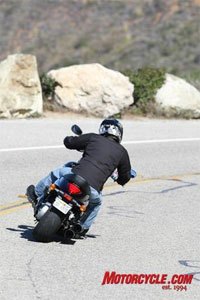









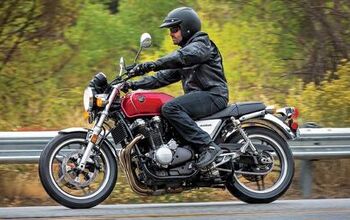
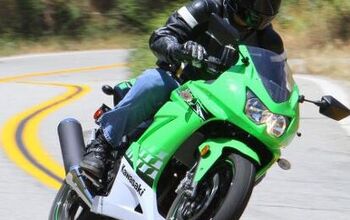
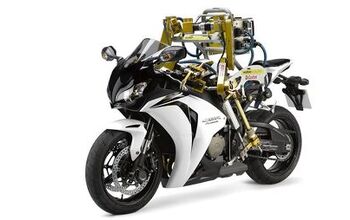


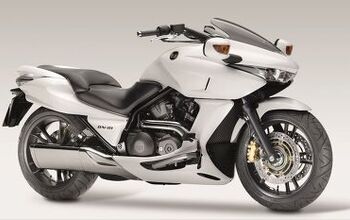












Comments
Join the conversation